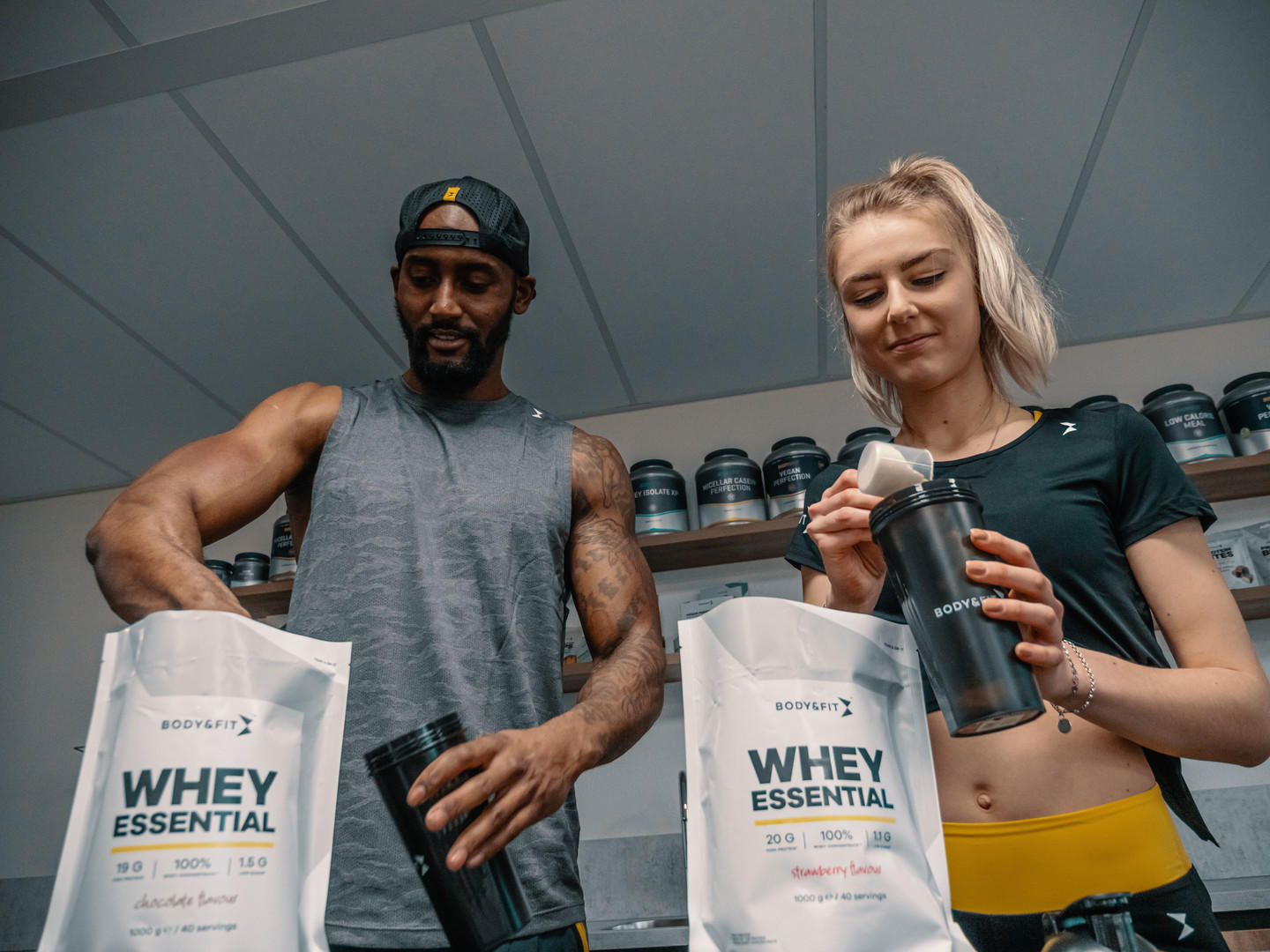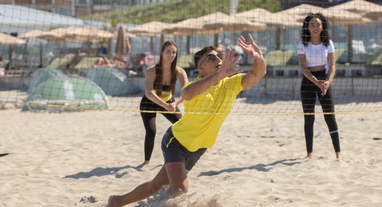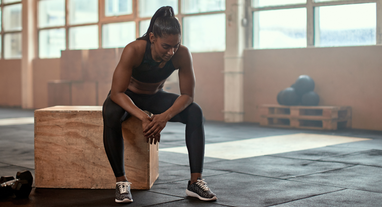The lowdown on muscle pain and recovery

When you’re training extra hard, or if you’re just starting out in sports, chances are you’ll experience some muscle pain. Even after a few days, ‘the burn’ can linger. It’s something we all have to deal with if we want to build muscle, lose weight or just be a bit more active in general. Here, we look at why that happens, whether you should train with muscle pain, and how to boost recovery to get the most out of your workouts.
Why do you feel muscle pain after exercise?
The soreness you feel in your triceps, quads or any other muscle you’ve trained that day, is caused by damage to the muscle fibres. Although it sounds a bit scary, muscle damage is not necessarily a bad thing. It’s actually pretty important if you want to build muscle. After a workout, the muscles start to repair themselves, provided you consume enough protein. That’s why a rest period is key to being able to train at the same level, or even take it up a notch.
To achieve that, you need to keep challenging your body. For example, a set of 30kg squats might feel heavy and uncomfortable at first, but the more you repeat it, the easier it gets. This is the muscles adapting and getting stronger. Increase the weight to 35kg and the process starts again. The muscle pain you had at 30kg will come back after your workouts.
You can challenge your body in various ways to build muscle:
-
Add more weight
-
Perform more reps
-
Switch up how you execute your reps (slower, faster, 1 ½ reps)
-
Try out some new exercises
Even the most experienced athlete will experience muscle pain with a new training schedule. In time, your body will get used to the new exercises and the muscle pain will ease.
If you don’t experience muscle pain, it doesn’t mean you’re not training well or hard enough. As long as you see or feel that you’re improving, that’s all that counts.
How to optimise muscle recovery during muscle pain?
After a tough workout, we naturally want our muscles to recover as well as possible. Rest and nutrition and rest play a big role in this.
Proteins
It’s important for everyone to hit their daily protein needs, and it’s especially important for active lifestyles because proteins aid the growth, maintenance and recovery of muscles. The British Nutrition Foundation recommends adults consume 0.75 grams of protein per kilo of body weight per day. Athletes and bodybuilders, on the other hand, can consume anywhere between 1.4 to 2 grams of protein per kilogram of body weight each day.
A whey protein powder is an easy way to up your protein intake and support muscle recovery. You can choose from a range of flavours and even use it in your favourite smoothies and baking recipes. Our protein bars are also great post-training or any time of the day. Above all, try out what you like and discover what fits your lifestyle and goals.

Amino acids and BCAAs
Another popular supplement among athletes, gym goers and bodybuilders are BCAAs. This stands for ‘Branched Chain Amino Acids’, which are L-Leucine, L-Valine and L-Isoleucine. Our body can’t produce these by itself, so you must get them from food or supplements. BCAA supplements are available in powder, capsule and tablet form.
Explore our blog to delve deeper into the differences between proteins, BCAAs and amino acids.
Magnesium
Magnesium is an essential mineral that plays an important role in the transmission of nerve impulses and proper muscle function. When your muscles receive a signal from the nervous system to tighten, such as during exercise, calcium is released. This allows the muscle to contract. Then, magnesium allows the muscle to relax properly again. Our Body&Fit Magnesium Citrate promotes energy metabolism and is a great addition to any healthy lifestyle.
Can I train with muscle pain, or should I rest?
It’s possible, but not ideal. You may not be able to move as well as usual, which can prevent you from training properly and increase the risk of injury. Also, your muscles have less time to recover from your previous workout. On average, our body needs 48-72 hours to recover. The exact time, however, depends on the workout, your recovery rate and how long you’ve been training.
If you struggle with muscle pain and want to keep getting after your goals, opt for an active recovery day. This could be a light cardio workout, such as walking or cycling. It’s a good way to keep moving without overexerting your muscles.
Follow @bodyandfit_official for more tips on sport, nutrition and health and find the inspiration you need to keep your fitness journey as exciting as ever. Discover healthy, protein-rich recipe ideas and top workout tips — like how to Romanian Deadlift — from our fit-seeking community. Everything you need to #FINDYOURFIT is right here.
Sources:
Protein - British Nutrition Foundation




